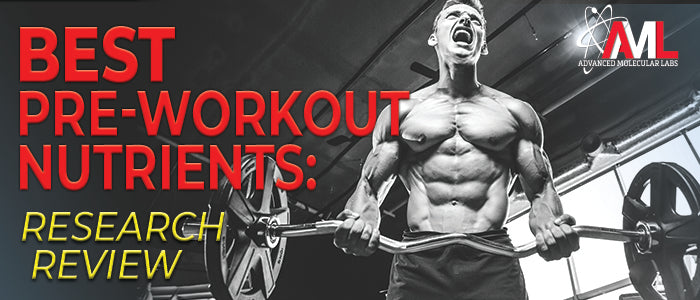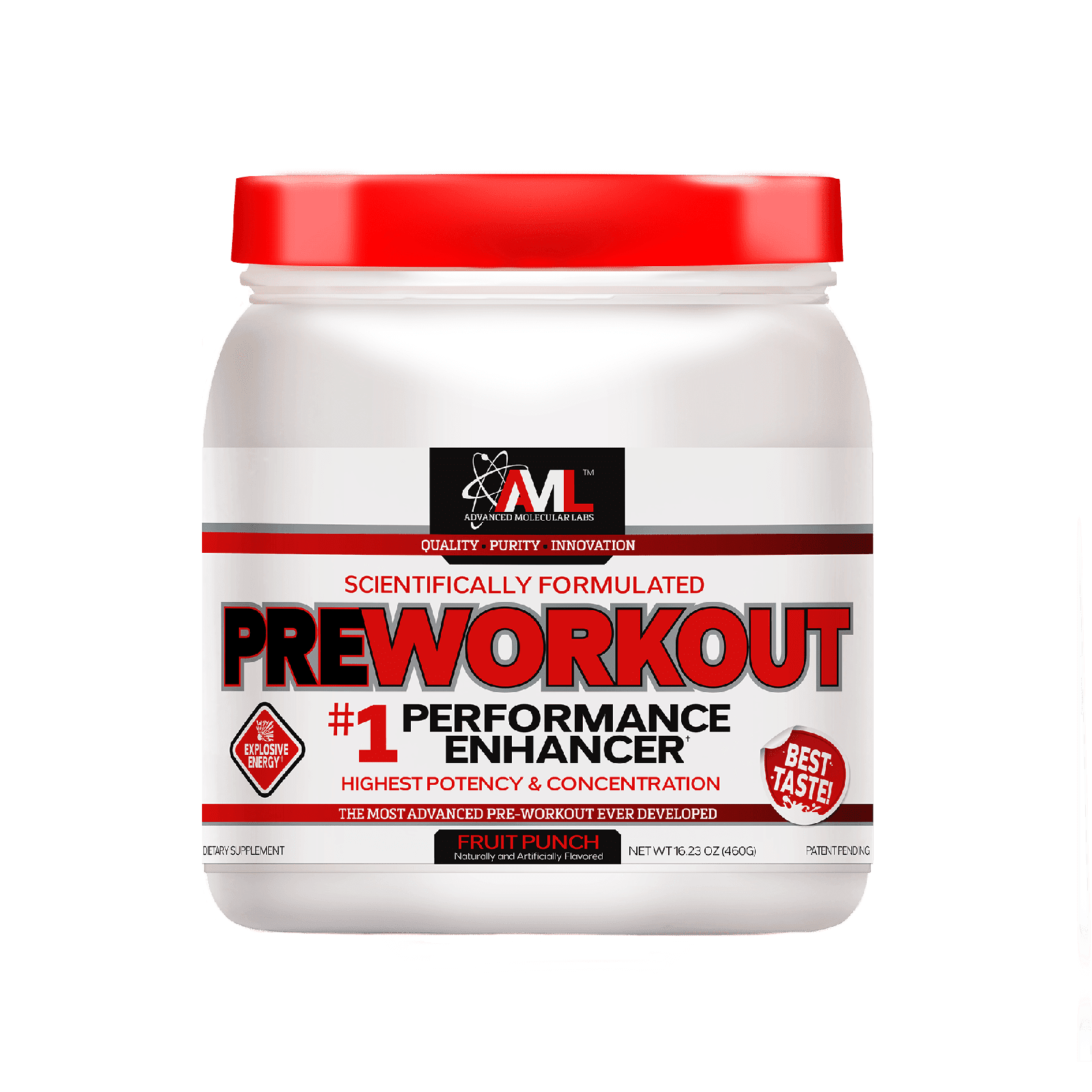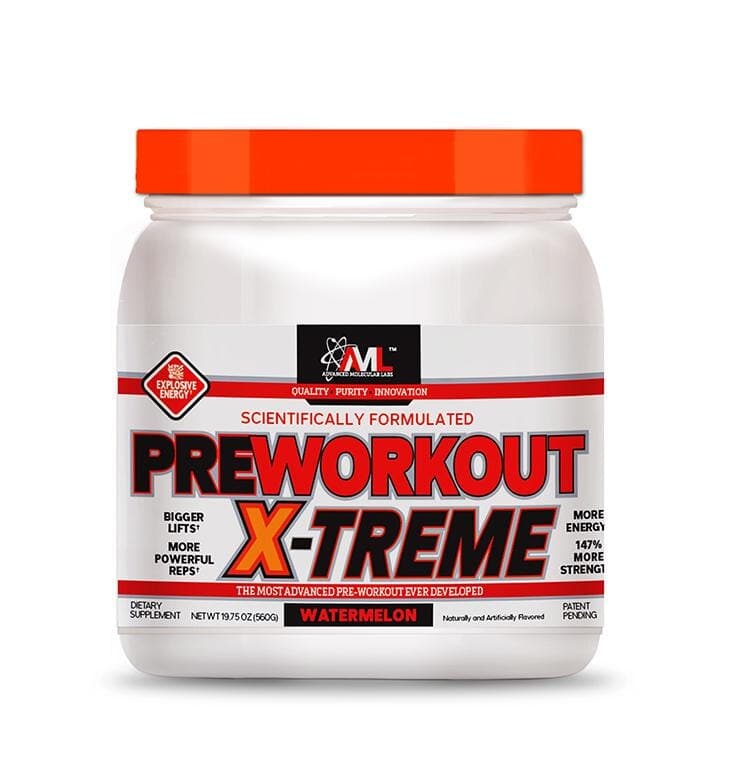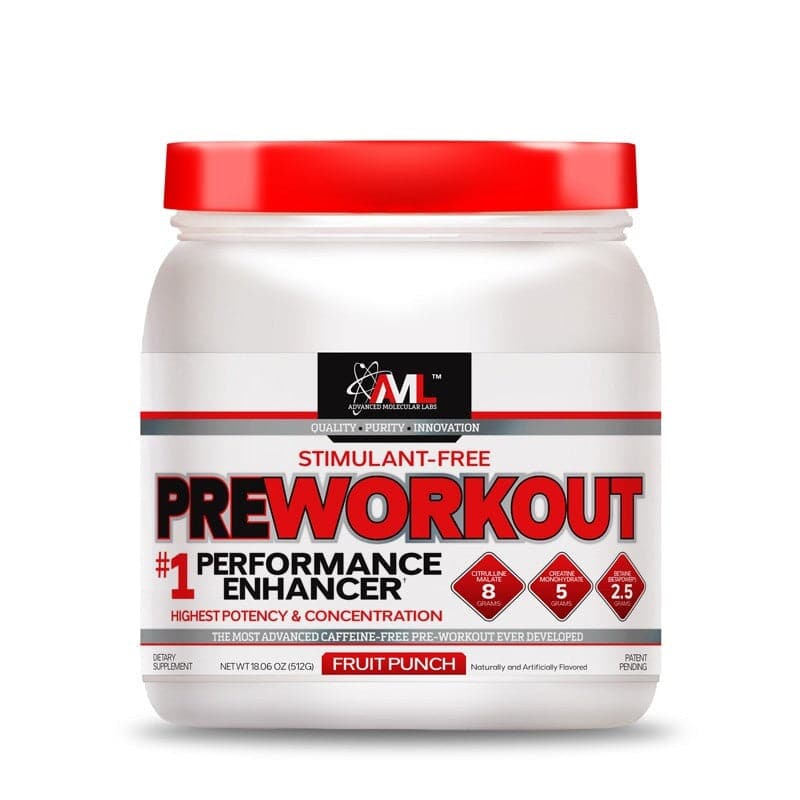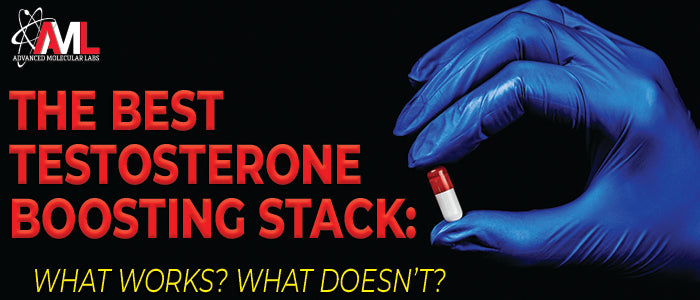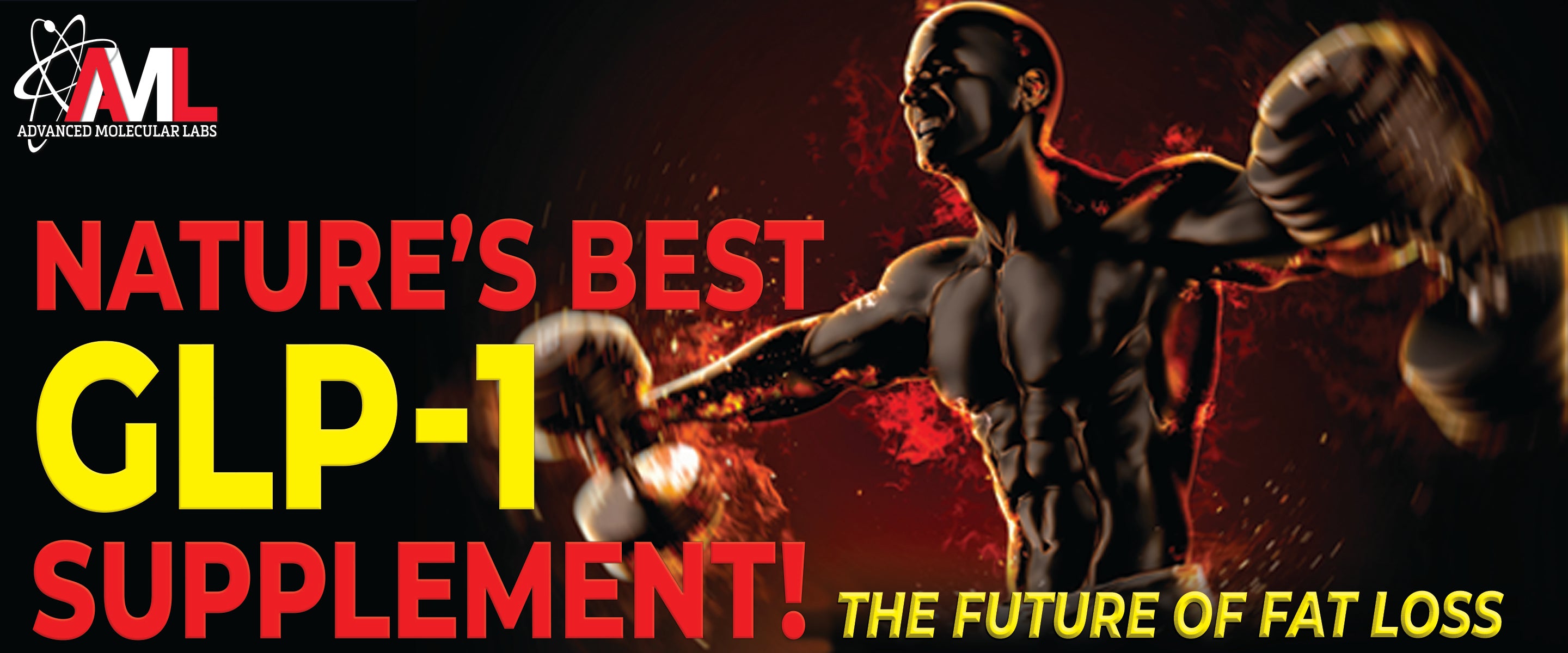

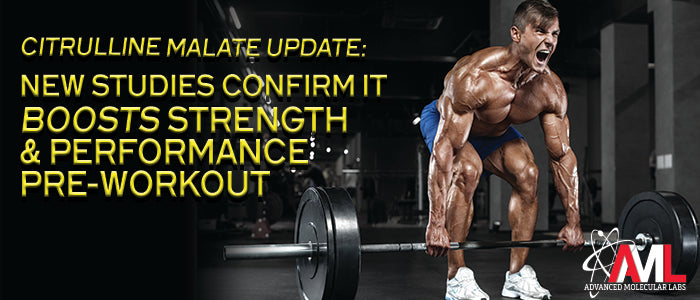
Citruline Malate: New Studies Confirm It Boosts Strength & Performance Pre-Workout
By Robert Schinetsky
Citrulline malate has become a staple (“must-have”) in pre workout supplements over the course of the past decade.
For athletes, citrulline malate offers the potential for greater work capacity, less fatigue, and better overall performance. For the bodybuilder and inner “meathead” in all gym rats, citrulline malate offers the allure of increased vascularity and “sick” muscle pumps.
A number of studies have been conducted over the past 15+ years and found that, overall, acute supplementation of citrulline malate enhances both aerobic and anaerobic performance. Additionally, a 2019 review by Trexler & colleagues found that citrulline malate offers beneficial effects on a variety of strength-performance measurements.[1]
A new meta-analysis adds to this body of evidence and supports the inclusion of citrulline malate in pre workout supplements to boost resistance-training performance.[2]
FYI, 8 grams of citrulline malate are included in both AML Pre Workout and AML Stim Free Pre Workout, and 10 grams of the ergogenic can be found in AML Pre Workout X-Treme!
Meta-Analysis Findings
The new meta-analysis, titled Acute Effect of Citrulline Malate on Repetition Performance During Strength Training: A Systematic Review and Meta-Analysis[2], included a of eight studies and a total of 137 participants with an average age of 25 years old. Researchers initially started with 84 potential studies, and after screening for those that met the inclusion criteria, eight remained.[2]
Overall, the researchers found that consuming a single dose of citrulline malate (6–8 g) resulted in less fatigue in the working muscles compared with a placebo group, which allows individuals to perform more repetitions to failure.
Specifically, citrulline malate supplementation enabled individuals to increase repetitions to failure by 3 (a 6.4% increases).[2]
While this is a small (but significant) effect size, it can be meaningful for athletes, bodybuilders, and fitness enthusiasts looking to take their performance and physique to the next level.
Is Citrulline Malate Better Than Creatine?
Creatine is the “gold standard” of performance-enhancing supplements. It is the most successful, well-researched, and consistently demonstrative effective supplement in the history of sports nutrition.
Basically, whenever a new supplement comes to market, it is compared to creatine, and how it compares ultimately determines whether it will be used long-term and possibly enter the “mainstream.”
The meta-analysis noted that citrulline malate’s magnitude of effect appears to be slightly lower than long-term use of creatine on repetitions to failure or acute intake of caffeine.[2]
The key here though is that creatine is something that needs to be taken daily (or at least most days of the week) to offer benefit. Citrulline malate, on the other hand, offers benefit after a single dose, and it may offer greater benefit when taken consistently over the long-term (more research is needed here though).
Few ingredients (if any, besides caffeine) have been thoroughly vetted and shown to improve performance after a single dose, thus highlighting the power/utility of citrulline malate.
The researchers also noted that citrulline malate offers similar improvements in performance compared to beta-alanine supplementation (which is another ingredient that needs to be taken daily to derive benefit from its usage).
Citrulline Malate & Building Muscle
Citrulline malate supplementation may help individuals increase the amount of work performed over a series of sets or workouts, which may improve the anabolic stimulus and subsequent adaptation to resistance training.
In other words, doing more work at a given load or over a certain period of time supports greater gains in size and strength!
Additionally, citrulline may play a role in stimulating muscle protein synthesis, and nitric oxide may activate satellite cell differentiation.[3,4]
Altogether this makes citrulline malate a no-brainer for those looking to see what else they can add to their supplement regimen beyond the likes of the “proven commodities” such as creatine monohydrate or caffeine (both of which are already included at research-supported dosages in AML Pre Workout and AML Pre Workout X-Treme).
They said in above article most likely 8 grams of citrulline malate had the performance effect in non caffeine group, rather than other ingredients because 8 grams of citrulline malate works acutely! This supports CM in pre workout!
Bonus! Latest Pre Workout Supplementation Research
A study published in the most recent edition of the Journal of the International Society of Sports Nutrition investigated the effects of a caffeinated or non-caffeinated multi-ingredient pre workout supplements (MIPS) on resistance exercise performance and subjective outcomes.[5]
Caveat: this study was funded by a supplement company but the owners of the company did not have input on the study, analysis, or production of the research document.
24 male and female resistance-trained individuals participated in a double-blind, counterbalanced, crossover study to evaluate the effects of a caffeinated multi-ingredient pre workout supplement, a non-caffeinated version of the same pre workout supplement, or placebo.
Researchers found that both “caffeinated or non-caffeinated pre-workout formulation improved maximal force production during an isometric squat test but did not provide additional benefit to leg press, bench press, or isokinetic squat performance over placebo.”[5]

Interestingly, this study did not find significantly differential effects of caffeine on performance outcomes, as peak isometric force production and measures of muscular endurance were similar between both caffeinated and non-caffeinated pre workout formulations.
Both pre workout formulations contain:
- 8 grams citrulline malate
- 6 grams beta-alanine
- 5 grams betaine
- 300 milligrams Alpha-GPC
Altogether this provides more evidence in favor of citrulline malate, especially since prior studies find benefit after just a single use.
For those of you wondering how exactly might citrulline malate be enhancing performance…
What Does Citrulline Malate Do?
Citrulline malate is a combination of the amino acid L-Citrulline and malic acid (malate).
L-Citrulline is a more effective supplement for elevating plasma arginine concentrations and nitric oxide activity than L-arginine based supplements (Arginine HCl, Arginine AKG, etc.).
Nitric oxide regulates key functions of skeletal muscle and blood vessels that may aid exercise performance, such as:
- Encouraging vasodilation (greater blood flow, nutrient delivery, etc.)
- Reducing the ATP cost of cross-bridge cycling
- Improving calcium handling in the sarcoplasmic reticulum
Additionally, L-citrulline is an essential component of the urea cycle, and it may facilitate ammonia-buffering capabilities, improve aerobic utilization of pyruvate, and decrease lactate production.[6]
Malic acid serves as an important intermediate in the Krebs cycle, which plays a role in ATP production. It’s thought that supplementing with malate (as citrulline malate) may increase oxidative ATP production; however potential performance-enhancing effects of malic acid have not been sufficiently studied (it’s also unlikely that malate is conferring any “real world” benefits as malic acid isn’t usually the limiting factor in the Krebs cycle).
One area that warrants further investigation is if even greater dosages of citrulline malate could provide dose-dependent increases in performances and/or reductions in fatigue. To date, most of the studies have used either 6 or 8 gram doses of citrulline malate.
Overall, though, 6-8 grams of citrulline malate is effective for improving resistance-training performance, and the vast majority of pre workout supplement consumers are those hitting the gym to lift weights and build muscle and strength.
In other words, if you like to hit the gym, lift weights, and choose the best pre workout supplements to improve performance, citrulline malate is in the top-tier of ingredients to consider (along with the likes of caffeine and creatine monohydrate).
AML Pre Workout, AML Stim Free Pre Workout, and AML Pre Workout X-Treme supply full doses of creatine monohydrate, citrulline malate, and caffeine (except the stim-free pre workout, of course), along with a full complement of other research-backed ergogenics, including:
- Betaine
- Beta alanine
- Tyrosine
- Grape skin polyphenols
- Electrolytes
With AML products, there is no hype or hyperbole, just high-quality supplements containing ingredients backed by research at their proper doses.
© Published by Advanced Research Media, Inc., 2022
© Reprinted with permission from Advanced Research Media, Inc.
References
- Trexler, E.T., Persky, A.M., Ryan, E.D., Schwartz, T.A., Stoner, L., & Smith-Ryan, A.E. (2019b). Acute effects of citrulline supplementation on high-intensity strength and power performance: A systematic review and meta-analysis. Sports Medicine, 49(5), 707–718. PubMed ID: 30895562 doi:10.1007/s40279-019-01091-z
- Vårvik FT, Bjørnsen T, Gonzalez AM. Acute Effect of Citrulline Malate on Repetition Performance During Strength Training: A Systematic Review and Meta-Analysis. Int J Sport Nutr Exerc Metab. 2021 Jul 1;31(4):350-358. doi: 10.1123/ijsnem.2020-0295. Epub 2021 May 19. PMID: 34010809.
- Goron, A., Lamarche, F., Blanchet, S., Delangle, P., Schlattner, U., Fontaine, E., & Moinard, C. (2019). Citrulline stimulates muscle protein synthesis, by reallocating ATP consumption to muscle protein synthesis. Journal of Cachexia, Sarcopenia and Muscle, 10(4), 919–928. PubMed ID: 31070021 doi:10.1002/jcsm.12435
- Anderson, J.E. (2000). A role for nitric oxide in muscle repair: Nitric oxide-mediated activation of muscle satellite cells. Molecular Biology of the Cell, 11(5), 1859–1874. PubMed ID: 10793157 doi:10.1091/mbc.11.5.1859
- Matthew T. Stratton, Madelin R. Siedler, Patrick S. Harty, Christian Rodriguez, Jake R. Boykin, Jacob J. Green, Dale S. Keith, Sarah J. White, Brielle DeHaven, Abegale D. Williams & Grant M. Tinsley (2022) The influence of caffeinated and non-caffeinated multi-ingredient pre-workout supplements on resistance exercise performance and subjective outcomes, Journal of the International Society of Sports Nutrition, 19:1, 126-149, DOI: 1080/15502783.2022.2060048
- Rhim, H.C., Kim, S., Park, J., & Jang, K.-M. (2020). Effect of citrulline on post-exercise rating of perceived exertion, muscle soreness, and blood lactate levels: A systematic review and meta-analysis. Journal of Sport and Health Science, 9(6), 1–9. doi:10.1016/j.jshs.2020.02.003



